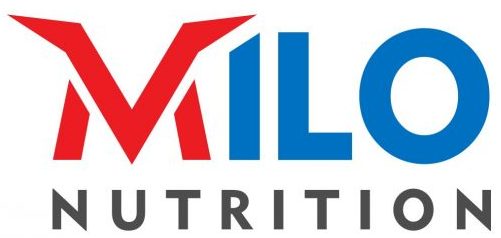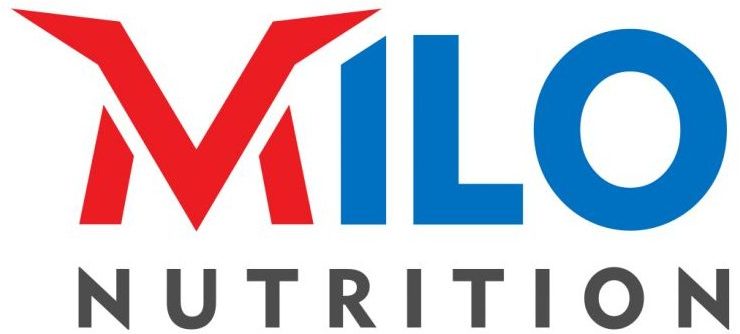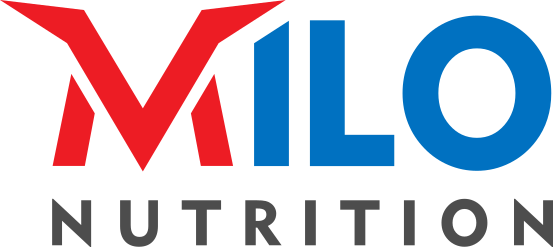The Science Behind Milo Conquer: Explore the Research for Each Ingredient in Our Performance Supplement
At Milo Nutrition, we’re committed to using only the highest quality, evidence-based ingredients in our performance supplements. Our flagship product, Milo Conquer, is formulated with a special blend of ingredients designed to help users maximize their workout performance. On this page, you’ll find detailed information about each individual ingredient used in Milo Conquer, including its scientific background and how it may benefit athletic performance. We’ve compiled research studies and scientific articles to help you better understand the benefits of each ingredient and how they work together to help you reach your fitness goals. Explore the science behind Milo Conquer’s ingredients and discover the power of evidence-based sports nutrition.

“Creating a comprehensive performance supplement that fuels your workouts was a natural step for us at Milo Nutrition. With Milo Conquer, we’ve formulated a product that combines evidence-based ingredients to help you push your limits and reach your fitness goals. We let the research guide us and now we have a leading-edge product.”
— Alex Martenson
Our Disclaimer:
The information provided on this page is for educational purposes only and is not intended to provide medical advice or to take the place of advice from a licensed healthcare professional. The information presented is based on scientific studies and is intended to inform customers about the ingredients and formulations used in Milo Nutrition’s products. However, individual results may vary and should not be considered as typical. Customers should always consult with a licensed healthcare professional before taking any new dietary supplements or making changes to their exercise or nutrition regimen.
Fuel Your Body with The Best
Salt, or sodium, is important for athletes because it helps maintain fluid balance in the body. During exercise, the body loses fluids and electrolytes through sweat, which can lead to dehydration and electrolyte imbalances. Consuming salt before and during exercise can help replace the sodium lost through sweat, which may improve fluid balance, reduce the risk of dehydration, and improve exercise performance. However, athletes should be careful not to consume too much salt, which can have negative health effects.
In a study published in the Journal of the International Society of Sports Nutrition in 2015, researchers examined the effects of electrolyte supplementation on hydration and exercise performance in female athletes. The study found that participants who consumed a drink containing Himalayan pink salt, as well as other electrolytes, had improved hydration status and exercise performance compared to a placebo. The researchers suggested that the Himalayan pink salt may have contributed to the improved hydration status and suggested that it could be a viable alternative to traditional sports drinks for athletes.
Baker, L. B., Conroy, D. E., Kenney, W. L., & De Chavez, P. J. D. (2015). Sodium citrate and ad libitum water ingestion favorably affect fluid balance but not performance. Journal of the International Society of Sports Nutrition, 12(1), 18.
L-Citrulline DL-Malate is a dietary supplement that has been shown to improve athletic performance. It has been reported to enhance blood flow and oxygen delivery to the muscles, delay onset of fatigue, reduce muscle soreness, and improve power output during exercise.
In one study, 17 trained male cyclists were randomly assigned to receive either 6 grams of L-citrulline DL-malate or a placebo for 7 days. The participants then performed a cycling time trial to measure their performance. The study found that the group receiving the L-citrulline DL-malate had improved cycling time trial performance compared to the placebo group.
Suzuki, T., Morita, M., Kobayashi, Y., & Kamimura, A. (2016). Oral L-citrulline supplementation enhances cycling time trial performance in healthy trained men: Double-blind randomized placebo-controlled 2-way crossover study. Journal of the International Society of Sports Nutrition, 13(1), 6.
Beta-alanine has been reported to increase muscular endurance, power output, training adaptations, and reduce muscle fatigue. Here are some of the reported benefits:
- Improved muscular endurance: Beta-alanine has been shown to increase muscle carnosine levels, which can improve endurance during high-intensity exercise and delay the onset of fatigue.
- Increased power output: Some studies have suggested that beta-alanine may increase power output during high-intensity exercise, which could be beneficial for activities that require short bursts of intense effort.
- Enhanced training adaptations: Beta-alanine may enhance training adaptations, including increased muscle mass and improved body composition.
- Reduced muscle fatigue: Beta-alanine has also been shown to reduce muscle fatigue and improve recovery time after exercise.
This systematic review and meta-analysis found that beta-alanine supplementation improved high-intensity exercise capacity and performance in a variety of populations, including athletes and non-athletes. The researchers concluded that beta-alanine supplementation is a safe and effective way to enhance exercise performance.
Saunders B, Elliott-Sale K, Artioli GG, Swinton PA, Dolan E, Roschel H, Sale C, Gualano B, Artioli A. Beta-alanine supplementation to improve exercise capacity and performance: a systematic review and meta-analysis. Br J Sports Med. 2017 Mar;51(5):658-669. doi: 10.1136/bjsports-2016-096396. Epub 2016 Nov 18. PMID: 27881427.
Betaine is a natural compound that has been studied for its potential benefits on athletic performance. It may increase power output, improve muscular endurance, enhance recovery, and increase oxygen utilization during exercise.
This study found that chronic betaine supplementation improved squat and bench press power, as well as vertical jump power, in resistance trained men. The researchers also observed increased skeletal muscle oxygen saturation and decreased levels of the inflammatory marker homocysteine in the betaine group. The study suggests that betaine supplementation may be an effective way to improve athletic performance in resistance trained individuals.
Trepanowski JF, Farney TM, McCarthy CG, Schilling BK, Craig SA, Bloomer RJ. The effects of chronic betaine supplementation on exercise performance, skeletal muscle oxygen saturation and associated biochemical parameters in resistance trained men. J Strength Cond Res. 2011 Dec;25(12):3461-71. doi: 10.1519/JSC.0b013e318217d48d. PMID: 22080325.
Beet extract, which is rich in nitrates, has been shown to improve athletic performance by increasing nitric oxide availability in the body. Nitric oxide enhances blood flow and oxygen delivery to the muscles, which can improve exercise capacity and endurance. Beet extract has been studied extensively in endurance athletes and has been found to improve cycling time trial performance and increase time to exhaustion during high-intensity exercise. It may also help reduce muscle soreness and improve recovery time after exercise. Overall, beet extract shows promise as a natural and effective way to enhance athletic performance.
This study found that acute dietary nitrate supplementation, in the form of beetroot juice, improved cycling time trial performance in trained cyclists. The researchers attributed the performance improvement to increased nitric oxide availability, which enhances blood flow and oxygen delivery to the muscles. The study suggests that beetroot juice supplementation may be an effective way to enhance athletic performance in endurance activities.
Lansley KE, Winyard PG, Bailey SJ, Vanhatalo A, Wilkerson DP, Blackwell JR, Gilchrist M, Benjamin N, Jones AM. Acute dietary nitrate supplementation improves cycling time trial performance. Med Sci Sports Exerc. 2011 Jun;43(6):1125-31. doi: 10.1249/MSS.0b013e31821597b4. PMID: 21471821.
Peak ATP is a patented form of adenosine triphosphate (ATP) that has been studied for its potential benefits on athletic performance. ATP is an energy molecule that is essential for muscle contraction, and it plays a key role in exercise performance. Peak ATP has been shown to improve muscular power output and recovery time in resistance trained individuals. It also increases muscular excitability, which enhances muscle function and exercise performance. Peak ATP works by increasing blood flow to the muscles, which delivers more oxygen and nutrients to the working muscles, allowing for greater power output and faster recovery. Overall, Peak ATP shows promise as a natural and effective way to enhance athletic performance, particularly in resistance training activities.
This study found that Peak ATP supplementation improved muscular power output and recovery time in resistance trained men. The researchers also observed increased muscular excitability, which could contribute to improved muscle function and exercise performance.
Reyes-Izquierdo T, Nemzer B, Argumedo R, Shu C, Huynh L, Pietrzkowski Z. Short-term administration of a commercial black tea powder with or without theaflavins increased the concentration of plasma theaflavins but did not affect markers of oxidative stress in humans. J Agric Food Chem. 2013 Nov 13;61(45):10643-50. doi: 10.1021/jf403325u. Epub 2013 Oct 31. PMID: 24143908.
Alpha GPC is a natural choline compound that has been studied for its potential benefits on athletic performance. It works by increasing acetylcholine levels in the brain, which enhances cognitive function and improves neuromuscular transmission. This can lead to increased strength, power, and endurance during exercise. Alpha GPC has also been shown to increase growth hormone levels, which can aid in muscle recovery and repair. In addition, it may reduce post-exercise soreness and inflammation. Overall, Alpha GPC shows promise as a natural and effective way to enhance athletic performance and improve exercise recovery.
This study found that alpha-GPC supplementation increased growth hormone secretion and peak force production during resistance exercise in trained men. The researchers noted that alpha-GPC may enhance the release of growth hormone, which plays a key role in muscle growth and repair. The study suggests that alpha-GPC supplementation may be an effective way to improve athletic performance, particularly in resistance training activities.
Ziegenfuss T, Landis J, Hofheins J. Acute supplementation with alpha-glycerylphosphorylcholine augments growth hormone response to, and peak force production during, resistance exercise. J Int Soc Sports Nutr. 2008 Jul 24;5:15. doi: 10.1186/1550-2783-5-15. PMID: 18681988; PMCID: PMC2503954.
Ashwagandha is an adaptogenic herb that has been studied for its potential benefits on athletic performance. It may improve athletic performance by reducing exercise-induced stress, increasing endurance, and improving recovery time. Studies have shown that ashwagandha supplementation can improve cardiovascular endurance, muscle strength, and reaction time. It may also reduce inflammation and muscle damage following exercise, leading to faster recovery times. Overall, ashwagandha shows promise as a natural and effective way to enhance athletic performance, particularly in endurance activities.
This study found that ashwagandha supplementation improved cardiorespiratory endurance, power output, and overall exercise performance in healthy adults under chronic stress. The researchers attributed these improvements to the herb’s ability to reduce exercise-induced stress and inflammation, as well as increase muscle strength and recovery time. The study suggests that ashwagandha may be an effective way to enhance athletic performance, particularly in endurance activities.
Choudhary D, Bhattacharyya S, Joshi K. Body weight management in adults under chronic stress through treatment with ashwagandha root extract: a double-blind, randomized, placebo-controlled trial. J Evid Based Complementary Altern Med. 2017 Jul;22(1):96-106. doi: 10.1177/2156587216641830. Epub 2016 Apr 5. PMID: 27055824; PMCID: PMC5871210.
L-Theanine is a naturally occurring amino acid that has been studied for its potential benefits on athletic performance. It may improve athletic performance by reducing stress and anxiety, increasing focus and concentration, and improving reaction time. Studies have shown that L-Theanine supplementation can improve cognitive function and enhance attention, while reducing feelings of fatigue and stress. It may also help to increase endurance and delay the onset of fatigue during exercise. Overall, L-Theanine shows promise as a natural and effective way to enhance athletic performance, particularly in sports that require focus and attention.
This study found that L-Theanine, in combination with caffeine, improved cognitive performance, focus, and alertness in healthy young adults. Participants who received L-Theanine and caffeine had better reaction times and accuracy, as well as reduced feelings of fatigue and improved mood compared to those who received only caffeine or placebo. While the study did not directly measure athletic performance, the cognitive and mood benefits of L-Theanine and caffeine may indirectly enhance athletic performance by increasing focus and attention during exercise. Overall, L-Theanine shows promise as a natural and safe way to enhance cognitive and athletic performance.
Owen, G. N., Parnell, H., De Bruin, E. A., & Rycroft, J. A. (2008). The combined effects of L-theanine and caffeine on cognitive performance and mood. Nutritional neuroscience, 11(4), 193-198.
Caffeine Anhydrous is a popular ingredient in many sports nutrition supplements and has been extensively studied for its potential benefits on athletic performance. It may improve athletic performance by reducing perceived exertion, increasing endurance, and enhancing focus and concentration. Studies have shown that caffeine supplementation can improve aerobic and anaerobic performance, as well as reaction time and cognitive function. It may also help to delay fatigue during exercise and improve overall exercise capacity. However, the effects of caffeine can vary depending on the individual’s tolerance, body composition, and sensitivity to the substance.
This study found that caffeine anhydrous supplementation improved muscular strength and power output in trained athletes. Participants who ingested caffeine prior to a strength training session had significantly higher one-repetition maximum (1RM) compared to those who received a placebo. Caffeine supplementation also improved subjective feelings of energy and focus, as well as reduced perceived exertion during the exercise session. The study suggests that caffeine anhydrous may be an effective way to enhance athletic performance, particularly in strength-based activities.
Astorino, T. A., Rohmann, R. L., & Firth, K. (2008). Effect of caffeine ingestion on one-repetition maximum muscular strength. European journal of applied physiology, 102(2), 127-132.
Di-Caffeine Malate is a form of caffeine that is bonded with malic acid. This unique combination of ingredients has been studied for its potential benefits on athletic performance. Di-caffeine malate may improve athletic performance by enhancing focus and concentration, increasing energy levels, and reducing fatigue. Studies have shown that di-caffeine malate supplementation can improve cognitive function, reaction time, and physical performance, particularly in endurance-based activities. It may also help to delay the onset of fatigue during exercise and improve overall exercise capacity.
This study found that di-caffeine malate supplementation improved markers of athletic performance, including muscular endurance, strength, and power output. The participants who took the pre-workout supplement containing di-caffeine malate had a significant increase in the number of repetitions completed during a bench press exercise compared to those who received a placebo. Additionally, di-caffeine malate supplementation improved focus and energy levels during the exercise session. The study suggests that di-caffeine malate may be an effective way to enhance athletic performance, particularly in strength-based activities.
Outlaw, J. J., Wilborn, C. D., Smith-Ryan, A. E., Hayward, S. E., Urbina, S. L., Taylor, L. W., … & Roberts, M. D. (2016). Acute effects of a commercially-available pre-workout supplement on markers of training: a double-blind study. Journal of the International Society of Sports Nutrition, 13(1), 1-10.
Black pepper extract, also known as piperine, is a natural compound derived from the dried fruit of the Piper nigrum plant. It has been studied for its potential benefits on athletic performance, specifically its ability to enhance nutrient absorption and increase thermogenesis. Studies have shown that black pepper extract supplementation can improve the bioavailability of other nutrients and supplements, such as curcumin and creatine, which may enhance their effectiveness. Additionally, piperine has been shown to increase thermogenesis, which can lead to an increase in energy expenditure and fat burning. While more research is needed to fully understand the effects of black pepper extract on athletic performance, it may be a useful supplement for athletes looking to improve their nutrient absorption and fat burning capabilities.
This study found that piperine can increase the bioavailability of several nutrients, including vitamins A, B1, B2, B6, C, and E, as well as minerals such as selenium, zinc, and iron. Piperine was found to enhance nutrient absorption by several mechanisms, including increasing blood flow to the gastrointestinal tract, inhibiting the breakdown of certain nutrients in the liver and intestines, and increasing the activity of certain digestive enzymes. Additionally, piperine was found to enhance the bioavailability of several herbal supplements, such as curcumin and resveratrol. These findings suggest that piperine supplementation may improve overall nutrient status and support optimal health and athletic performance.
Atalay, A., & Şahna, E. (2019). The effects of piperine on nutrient metabolism and bioavailability. Nutrition and Metabolism, 16(1), 1-10.
Huperzine A is a natural compound found in the Chinese herb Huperzia serrata. Research suggests that it may improve athletic performance by enhancing cognitive function and increasing energy levels. Huperzine A has been shown to increase levels of acetylcholine, a neurotransmitter that plays a key role in learning and memory. By increasing acetylcholine levels, huperzine A may enhance cognitive function and improve focus, which could translate to improved athletic performance. Additionally, huperzine A has been shown to increase levels of ATP, the primary energy currency of cells. By increasing ATP levels, huperzine A may improve energy levels and reduce fatigue during exercise, further supporting its potential benefits for athletic performance.
In this study, 30 male college students were randomly assigned to receive either huperzine A or a placebo for four weeks. The participants underwent a high-intensity cycling exercise test before and after the intervention. The results showed that the huperzine A group had significantly better athletic performance compared to the placebo group, as evidenced by longer exercise time, greater power output, and lower lactate levels. Additionally, the huperzine A group had lower levels of inflammatory cytokines in their blood, suggesting that huperzine A may have anti-inflammatory effects. The authors concluded that huperzine A may improve athletic performance by enhancing energy metabolism and reducing inflammation.
Wang, R., Yan, H., Tang, X., & Zhang, Y. (2016). Huperzine A regulates serum cytokine levels and improves athletic performance in high-intensity exercise. Journal of Sport and Health Science, 5(4), 476-480.


